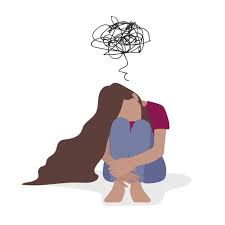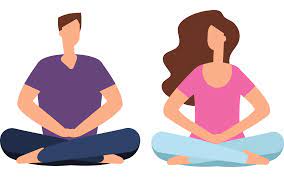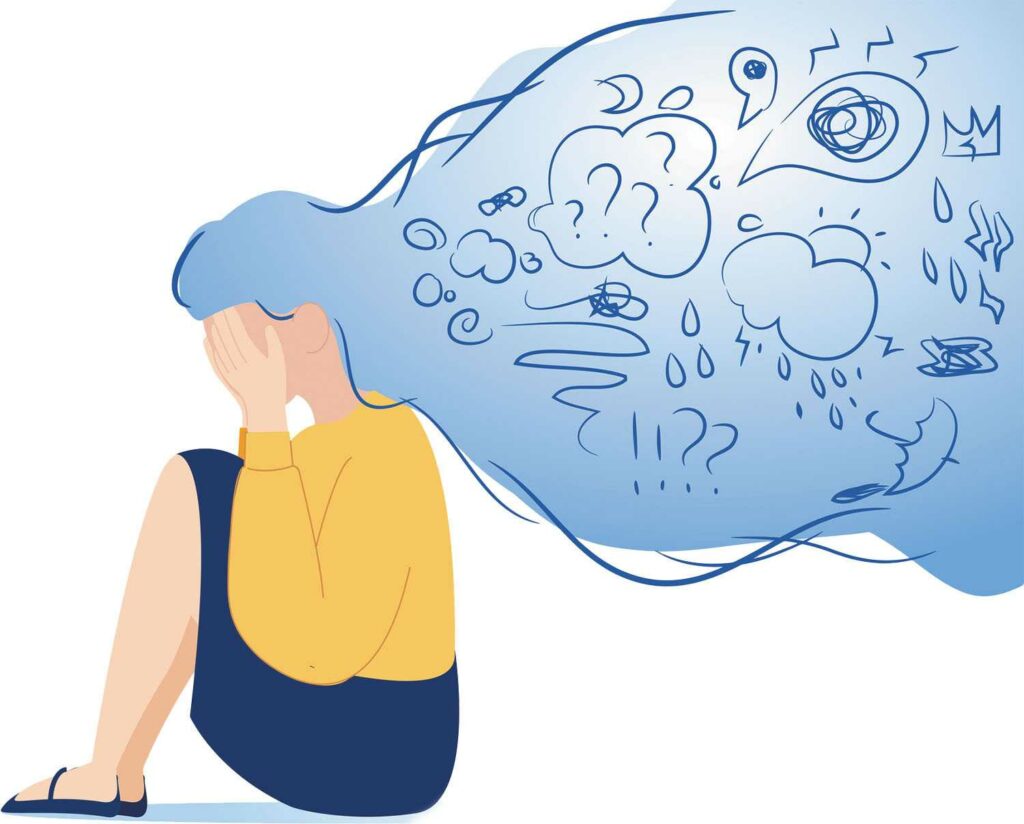We all experience stress at some point in our lives. It’s normal to feel anxious before an important meeting or stressed out when we’re juggling too many things at once. But sometimes, our stress can get out of control and start affecting our daily lives. If you’re feeling overwhelmed by stress on a regular basis, you may be suffering from emotional stress symptoms. In this blog post, we will discuss the most common symptoms of emotional stress and how to deal with them.
Contents
Understanding Emotional Stress
 Emotional stress is described as a type of stress that is brought on by our emotions. It is different than physical stress, which is caused by things like illness or injury. Emotional stress can be just as harmful as physical stress, and it is important to be able to recognize the symptoms so that you can deal with them in a healthy way.
Emotional stress is described as a type of stress that is brought on by our emotions. It is different than physical stress, which is caused by things like illness or injury. Emotional stress can be just as harmful as physical stress, and it is important to be able to recognize the symptoms so that you can deal with them in a healthy way.
As stress is considered a normal reaction to the events and experiences we have in our lives. And emotional stress is also a normal reaction. It becomes harmful when it is constant or too intense for us to cope with. When this happens, it can lead to problems like anxiety, depression, sleeping difficulties, and even physical health problems.
Moreover, the situation is not helped when we live in a world that is constantly trying to tell us that we should be happy and stress-free. This can make it hard to admit that we are struggling with emotional stress.
But it is important to remember that everyone experiences emotional stress at some point in their lives. And it is nothing to be ashamed of. Instead, you should view it as an opportunity to learn more about yourself and how you cope with stress.
What Are The Emotional Stress Symptoms?
Emotional stress symptoms are different for everyone. In fact, the symptoms are categorized into four different types: mental, physical, behavioral, and emotional. Let’s take a look at each one.
Mental Symptoms
This is often a type of stress that people brush off. After all, who doesn’t have a little anxiousness from time to time? But when your anxiousness is constantly high and it’s impacting your day-to-day life, that’s when you know it’s time to get help. Some mental symptoms of emotional stress are:
- Feeling overwhelmed or hopeless
- Constant worry
- Racing thoughts
- Problems concentrating
These mental symptoms are just a few of the ones you may experience. If you’re experiencing any of these on a regular basis, it’s time to seek help from a professional.
Physical Symptoms
Your body is constantly under stress when you’re going through an emotionally tough time. This can manifest in physical symptoms such as:
- Headaches
- Upset stomach or digestive issues
- Fatigue
- Chest pain
- Problems sleeping
- Aches and pains
These physical symptoms can be a result of the mental symptoms you’re experiencing. When your mind is constantly racing, it’s hard for your body to relax. And in this way, emotional stress can be a vicious cycle.
Behavioral Symptoms
Your behavior is also a very good indicator of whether or not you’re experiencing emotional stress. If you find yourself coping in unhealthy ways, it’s a sign that you need to get help. Some behavioral symptoms of emotional stress are:
- Overeating or undereating
- Sleeping too much or not enough
- Withdrawing from friends and activities
- Procrastinating or neglecting responsibilities
- Engaging in risky behaviors, like drug use or driving recklessly
If you’re exhibiting any of these behaviors, it’s important to reach out for help. Emotional stress can lead to serious problems if it’s not dealt with, so don’t take behavioral changes lightly.
Emotional symptoms
 The emotional stress symptoms are different for everyone. You may experience one or more of the following:
The emotional stress symptoms are different for everyone. You may experience one or more of the following:
If you are experiencing any of these emotional symptoms, it is important to take a step back and assess the situation. Moreover, it is crucial to find healthy coping mechanisms to deal with the stress. Emotional stress symptoms can actually be warning signs that something in your life needs to change.
If you are experiencing anxiety, reach out to a friend or family member for support. If you are feeling overwhelmed, try to break down your tasks into smaller goals. Seek professional help otherwise. Eventually, you will get relief from your symptoms.
How To Deal With Emotional Stress Symptoms?
It is essential to learn how to deal with emotional stress symptoms so that you can take control of your life and avoid letting stress get the better of you. There are a variety of different emotional stress symptoms, and it is important to be aware of them for a better life.
Here are a few tips to cope with emotional stress symptoms:
Talk to somebody who understands
When you are feeling overwhelmed and stressed, talking to somebody who can empathize with what you are going through can be very helpful. It can be a family member, friend, therapist, or counselor. Just knowing that somebody understands what you are going through and is there for you can make a big difference.
Also, you should not avoid the problem or try to bottle up your emotions. It is essential to face the problem and deal with it so that you can move on.
Identify your stressors
One of the best ways to deal with emotional stress is to identify what is causing it. Once you know what is causing your stress, you can start to find ways to remove or minimize those triggers from your life. This may not always be possible, but it is worth trying. There may be some things in your life that you can change, and others that you simply have to learn to deal with.
Some common stressors can be anything, for example:
- Your job
- Money problems
- Family issues
- Health concerns
- Problems with friends or relationships
These are actually common and cause a lot of emotional stress to people. If you can identify your stressors, it will be easier for you to find ways to deal with them.
Take some time out for yourself
 When you are having emotional stress, it is important to take some time out for yourself. It is really important because it can help you to relax and feel better. There are many different things that you can do in order to take some time out for yourself. For example, you could read a book, listen to music, spend time in nature, or even just take a bath.
When you are having emotional stress, it is important to take some time out for yourself. It is really important because it can help you to relax and feel better. There are many different things that you can do in order to take some time out for yourself. For example, you could read a book, listen to music, spend time in nature, or even just take a bath.
It is important to find what works best for you and to do it on a regular basis. Taking some time out will help you to clear your head and relax your body. In fact, it will also help you to be able to deal with emotional stress more effectively.
Drink plenty of fluids
It is also important to drink plenty of fluids when you are under emotional stress. This will help to prevent dehydration and keep your body functioning properly. For example, you can choose fluids to drink:
- Water
- Juice
- Herbal tea
But you should avoid some beverages that can cause dehydration, such as:
- Coffee
- Alcohol
- Soda
So, with plenty of fluids, you can manage emotional stress symptoms and also can make your body function well.
Get regular exercise
Exercises are believed to be one of the most effective ways to reduce stress. It can be anything from a light jog to lifting weights at the gym. As long as you’re moving your body and breaking a sweat, you’re doing it right. Exercise releases endorphins, which have mood-boosting effects.
It also helps to clear your mind and give you a sense of accomplishment. When you’re feeling stressed, try to get in at least 30 minutes of exercise. If you can’t make time for a full workout, take a brisk walk around your neighborhood or do some jumping jacks in your living room.
Get enough sleep
Sleep is another important factor in managing emotional stress. When you are tired, your body is more susceptible to stress and you may have a harder time coping with it. Make sure to get enough sleep each night and to take breaks during the day if you feel yourself getting overwhelmed.
For this, you can make changes as per your sleep cycle.
- Wake up and go to bed at the same time every day, including weekends. This will help to regulate your body’s natural sleep rhythm.
- Get at least seven to eight hours of sleep each night.
- Create a relaxing bedtime routine such as reading or taking a bath so your body knows it’s time to wind down for the night.
- Avoid caffeine and alcohol before bedtime as they can interfere with sleep.
Practice meditation
 Meditation is a form of mindfulness that allows us to focus on the present moment and become more aware of our thoughts and feelings. It can help ease anxiety and stress by promoting relaxation. There are many different types of meditation, so find one that works best for you.
Meditation is a form of mindfulness that allows us to focus on the present moment and become more aware of our thoughts and feelings. It can help ease anxiety and stress by promoting relaxation. There are many different types of meditation, so find one that works best for you.
There are many different ways to meditate, so find one that works best for you. If you’re new to meditation, start with a simple technique like guided meditation or progressive muscle relaxation. Once you’ve learned the basics, you can try more advanced techniques like mindfulness meditation or transcendental meditation.
Write journals
Journaling is considered to be one of the most effective ways to deal with emotional stress. It allows you to get all your feelings and thoughts out without having to worry about being judged. You can also use journaling as a way to track your progress and see how far you’ve come.
There are a few different ways you can go about journaling, so find what works best for you. Some people prefer to write in a physical journal, while others find it easier to type out their thoughts on a computer or phone. There is no right or wrong way to do it, so do whatever feels best for you.
So, these are some common coping mechanisms for emotional stress. If you’re feeling overwhelmed, remember that you are not alone and there are people who care about you. You just need to be a little bit more mindful about your emotional wellbeing and take the time to care for yourself.
When To Seek Professional Help?
It is important to seek professional help if you are feeling any of the following emotional stress symptoms:
- You feel like you can’t control your emotions or they are controlling you
- Your behaviors or coping mechanisms are causing problems in your life or negatively impacting your health
- May have thoughts of harming yourself or someone else
- Feel like you’re in danger or someone close to you is in danger
- Your life isn’t worth living or that things will never get better
- Symptoms are causing problems at work, school, or at home
- You’re using substances (alcohol, drugs, etc.) to cope with your emotions or feelings
If you are feeling any of these emotional stress symptoms, please reach out to a professional. Because if at this point you are struggling to cope, you likely need more support than what friends or family can provide.
Moreover, the thought of harming yourself or others is a warning red flag that needs immediate attention and intervention. If you or someone you know is in danger, please call emergency services.
If left untreated, emotional stress can lead to serious mental health conditions, such as anxiety disorders and depression. It is important to get help early on if you are struggling to cope with your emotions.
What Are The Professional Treatment Options?
 When your symptoms are manageable and not interfering with your quality of life, you may not need professional help. But when emotional stress starts to take a toll on your health, happiness, and productivity, it might be time to seek out a mental health provider.
When your symptoms are manageable and not interfering with your quality of life, you may not need professional help. But when emotional stress starts to take a toll on your health, happiness, and productivity, it might be time to seek out a mental health provider.
There are many different types of treatment for emotional stress symptoms. Some of these include:
Cognitive-behavioral therapy
CBT is a type of therapy that helps you identify and change negative thought patterns and behaviors. This can be an effective treatment for emotional stress. In this, a therapist work with you to identify your stressors and develop coping mechanisms.
Moreover, therapy aims at helping you understand how your thoughts and behaviors contribute to your stress. People with stress feel like they can’t cope or manage their stress, but with CBT you will develop healthy coping mechanisms. Because it tends to focus on the here and now, CBT is a shorter-term treatment option.
Interpersonal therapy
IPT is a type of therapy that helps you manage your relationships. This can be an effective treatment for emotional stress because it can help you identify and change negative patterns in your relationships. In this, a therapist works with you to understand your relationships and how they may be affecting your emotional stress.
IPT can also help you learn new communication and problem-solving skills. Moreover, in this type of therapy, you will also work on building a support system. This can involve family and friends.
Family therapy
This type of therapy can help families to communicate better with each other. It can also help them understand and support each other through difficult times. Family therapy can be an effective treatment for emotional stress because it helps you develop positive relationships with your family members.
In fact, with family therapy, you will most likely feel more understood and supported. And this will lead to a decrease in your emotional stress symptoms.
Psychodynamic therapy
When you are under emotional stress, you may feel like you are not in control of your thoughts or emotions. You may feel like your head is spinning, or that you are “losing it.” There, psychodynamic therapy can help you understand and deal with your stress.
This type of therapy focuses on the unconscious mind and how it affects our behavior. It can help you identify patterns in your thoughts and emotions that may be causing or exacerbating your stress. Once you are aware of these patterns, you can begin to change them.
Medication
 This is often considered the go-to solution for mental and emotional disorders, but it should not be the first line of defense. Drugs may help to mask or numb the symptoms, but they do not address the root cause of the problem. In some cases, medication can even make the situation worse. So, discuss the risks and benefits with your doctor before taking any medication.
This is often considered the go-to solution for mental and emotional disorders, but it should not be the first line of defense. Drugs may help to mask or numb the symptoms, but they do not address the root cause of the problem. In some cases, medication can even make the situation worse. So, discuss the risks and benefits with your doctor before taking any medication.
Some common prescriptions might include:
- Anti-anxiety medications
- Anti-depressants
- Stimulants
- Mood stabilizers
If you and your doctor decide that medication is the best course of action, be sure to monitor the side effects and efficacy closely. And, never hesitate to speak up if you feel like something isn’t right.
Support groups
People are social creatures, and we often find comfort in talking to others who are going through similar experiences. This is where support groups come in. Support groups provide a space for you to share your experiences with others and to receive support from them.
These groups can be helpful in providing social support, which has been shown to reduce stress levels. They can also provide you with information and resources that you may not have otherwise had access to.
These are some professional help that a person can get to deal with emotional stress. If you are feeling any of these symptoms, please reach out for help.
Conclusion
To conclude, emotional stress symptoms are not something to be taken lightly. If you are experiencing any of the symptoms on this list, it is important to seek professional help in order to manage your stress levels. Remember, emotional stress can have a serious impact on your overall health and well-being, so don’t hesitate to reach out for help if you need it.
For more information, please contact MantraCare. Stress can have both physical and mental effects on the body, leading to negative consequences such as anxiety, depression, and even physical illnesses. If you have any queries regarding Online Stress Counseling experienced therapists at MantraCare can help: Book a trial Stress therapy session


